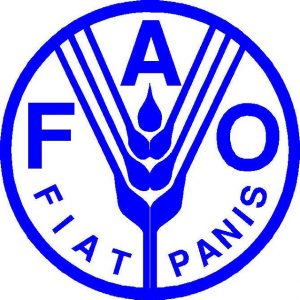The Food and Agriculture Organisation (FAO) has launched a new regional project to improve the livelihoods and economy of the rural population in the Sahel and the Horn of Africa.
A statement copied to the GNA said the project was launched during a two-day meeting held in Addis Ababa, Ethiopia.
“Africa is blessed with an abundance of natural resources,” said Dr Jane Edeme, Deputy Director for Rural Economy and Agriculture of the African Union.
She said “and even though it is home to some of the fastest growing economies, the number of hungry people has increased in 2014.”
“In both the Sahel and the Horn, the majority of the population are dependent on farming and pastoral activities both of which are particularly susceptible to shocks. Given the commonalities characterising these two regions, it is imperative to adopt a unified approach, while also addressing issues specific to each area to tackle food insecurity and build community and household resilience”, said Patrick Kormawa, FAO Sub-regional Coordinator for Eastern Africa and Representative to AU and UNECA.
The statement said the food and nutrition security situation in Africa’s dry lands particularly in the Sahel and the Horn of Africa remains a major concern, marked by both chronic and acute vulnerabilities.
It said recurrent crises, mainly driven by climatic shocks, volatile food prices, conflicts, coupled with poverty and chronic vulnerabilities, have eroded the coping capacities of the subsistence farming populations and weakened their livelihoods.
“It is time for action, in a collective manner, to do things differently. Drought should never turn into famine in our region, and we need to share information and initiatives to deal with the harsh reality,” said Dr John Kabayo, Intergovernmental Authority on Development IGAD, Coordinator IGAD Drought Resistance Disaster Resilience Sustainability Initiative (IDDRSI) Platform.
He said “it is important to know that there are no boundaries in climate change and we need to be part of the same strategy, as this project sets out to do.”
The statement said the objective of this newly launched project is to boost the identification and scaling-up of most relevant and effective interventions for building up resilience of households, communities and agricultural systems.
It said it is also to help eradicate food and nutrition insecurity in the Horn of Africa and the Sahel regions.
The statement said this will be done by establishing a more robust and effective partnership between the Centre for Innovation in Learning and Student Success CILSS and IGAD, including the establishment of knowledge platforms.
It said by sharing expertise and evidence-based scientifically generated recommendations through this project, governments and the development community will be able to minimise the risk of climatic shocks, volatile food prices and conflicts.
“There have been a succession of food crises and it is not only the Sahel countries that are being affected, there is a larger context, and there is a need for precise indicators to measure the complex idea of resilience,” said Mr Issoufou Baoua, CILSS Expert Analyst.
He said setting up this program solves a concern of the Sahel to set up a political body around this issue to build up resilience.





